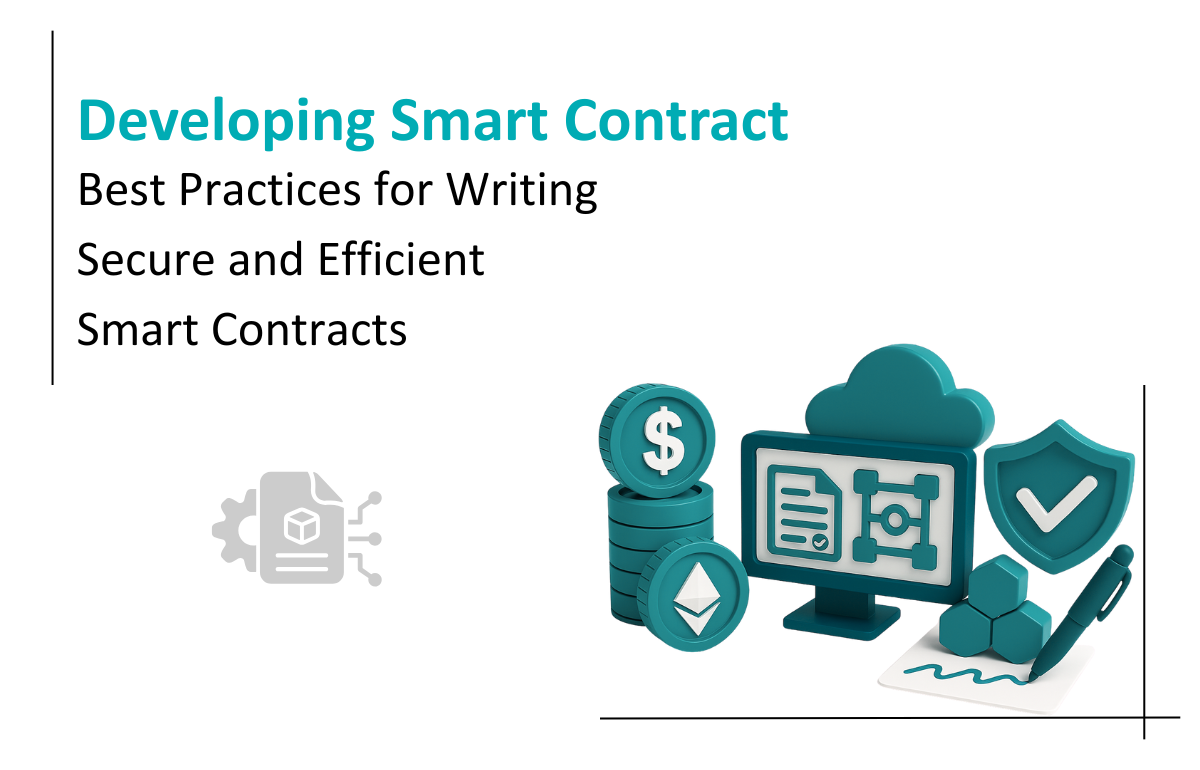
Smart contracts are innovating the growth of startups through the blockchain-enabled industries, automating parts of the workflow and building confidence. Self-executing code blocks are already vital to the development of decentralized applications in a variety of industries: fintech, supply chain, logistics, real estate, and healthcare. While the smart contract landscape continues to unfold and provide potential, the expectation of responsibility associated with smart contracts, particularly from startups, is particularly daunting, considering the challenges of technical complexity, regulatory uncertainty, blockchain compliance, and security surrounding the build process itself.
This blog post will outline the smart contract best practices for building blockchain solutions, which will penetrate each of the areas outlined, designed for startup founders, developers, and strategists who want to build compliant, resilient, and scalable blockchain solutions, explore web3 devlopment opportunities, and engage in DeFi development projects. It will also highlight the role of blockchain technology for business in creating secure, transparent, and future-ready solutions.
Smart contracts are self-executing software applications embedded on a blockchain that automatically execute an agreement, when and if the conditions are met as agreed on, without a third party intervening. Smart contracts do not have intermediaries (an intermediary will be defined later) and are inherently immutable until consensus is reached that will allow change. Traditional contracts have intermediaries that historically add transaction time and/or cost to contracts, while smart contracts have no intermediaries and are executed quickly and so subject to little or no transaction cost.
Smart contracts allow startups to:
We are already beginning to see smart contracts used to disrupt older industries with fintech (automated lending), supply chain (tracking real-time items), property (tokenized property), and healthcare (securely sharing data with patients), and dApp development across sectors where Web3 startups are creating new decentralized solutions powered by blockchain technology for business. By adopting smart contract best practices, startups can ensure these solutions are both secure and scalable.
Opportunities:
Risks:
Startups particularly engaged in DeFi should also consider how artificial intelligence is reshaping the landscape. For example, AI-driven analytics can enhance blockchain-based financial systems by improving fraud detection, risk scoring, and automated decision-making. We’ve explored this in detail in our blog on AI and Blockchain in Fintech: Driving Decentralized Finance, where we highlight how AI and blockchain together are transforming decentralized finance.
You can also check out our Generative AI and Blockchain Smart Contract Solutions blog to learn how AI can be leveraged to optimize smart contract creation, enhance security, and streamline Web3 development processes.
Before you begin coding:
You can use tools to visualize user flows like Miro or Lucidchart and get stakeholders involved early to ensure that we are making the right assumptions. Following smart contract best practices at this stage helps avoid costly mistakes later.
Each blockchain has trade-offs. Consider:
Platform | Strengths | Use Cases |
Ethereum | Mature ecosystem, EVM support | DeFi, NFTs, DAOs, DeFi development |
Polygon | Low fees, Ethereum-compatible | Scalable dApps, gaming, and dApp development |
Solana | High throughput, low latency | Real-time apps, microtransactions |
Hyperledger | Permissioned, enterprise-grade, ideal for Hyperledger for enterprise solutions | Supply chain, healthcare |
Startup Tip: Choose based on scalability, cost, developer tools, and community support.
Security is non-negotiable. Follow these principles:
Tools to use:
Smart contracts must be lean and maintainable:
Thorough testing prevents costly errors:
Smart contracts must comply with:
Smart legal contracts serve as an intersection between code and laws. Additionally, speak to legal professionals and processor alternatives such as Clause.io or OpenLaw for hybrid contracts.
Deployment is not the finish line:
Smart contracts need long-term planning:
For startups, smart contracts can be distinguished as coded, programmed smart contracts with capabilities of trust, automation, and scalability for Web3. By implementing best practices concerning smart contracts, such as design, smart contract security, testing, and compliance, including smart contract auditing, founders can create persistent systems with a lasting effect through implementation.
With the rise of Web3, smart contracts will emerge underpinning the entire ecosystem from decentralized finance to digital identity. Blockchain technology for business will further accelerate this transformation, giving startups a competitive edge in building decentralized, scalable solutions. Web3 Startups that are pioneering use cases and understanding smart contracts today will be leaders on the innovation curve.
Seaflux is a trusted blockchain development company offering tailored blockchain development services and custom blockchain solutions for startups. From blockchain app development and smart contract development services to innovative DeFi development, we ensure security, scalability, and compliance at every step.
Our expert blockchain consulting team helps you choose the right strategy, while our role as a Web3 development company enables us to deliver cutting-edge Web3 development services that drive growth in the decentralized ecosystem.
Contact us today to see how we can help your business unlock the potential of blockchain.

Marketing Executive